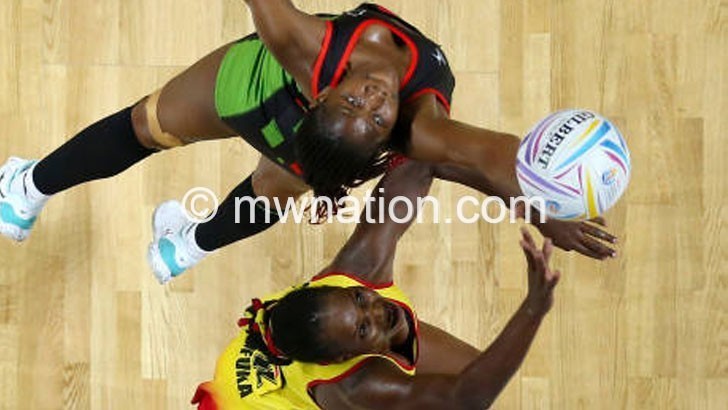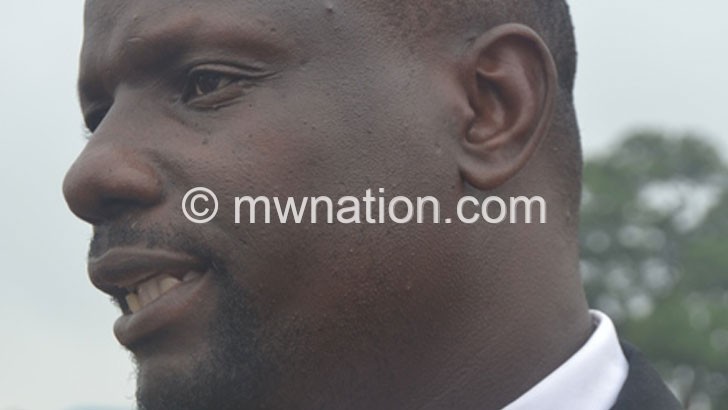Meticais lures Malawi players
 The trend of Malawian players sneaking out to neighbouring Mozambique clubs is no new phenomenon. Only that it was, until this season, on a small scale, predominantly involving TNM Super League small fish.
The trend of Malawian players sneaking out to neighbouring Mozambique clubs is no new phenomenon. Only that it was, until this season, on a small scale, predominantly involving TNM Super League small fish.
But now, there is a worrying increase as the influx to Mozambican clubs has spread to Malawi players who were helping to set Super League alight in restoring its standards. Sadly, the massive exodus is more about the power of Mozambique currency meticais than football reasons.
This month, the Super League has ‘lost’ Raquub Milanzi (free agent), Joseph Kamwendo (Mighty Wanderers), Chiukepo Msowoya (Escom United) and Jimmy Chikulekule (Blantyre United) to Chibuto FC, Liga Maculmana, Maxaquene and Desportivo de Matchedje, respectively.
The four have increased the legion of Malawians in the Mozambique top league from eight to 11 after Lewis Minjale (Chingale de Tete), Sankhani Nyirenda (Ferroviaro de Maputo), Gerald Nkungula (HBO), Emmanuel Chipatala (Ferroviaro de Nampula), Zicco Mkanda and Simplex Nthala (Liga Maculmana).
There are also little-known Malawian players in Mozambique such as Dangalira Mnelemba, according to reports. Wanderers, too, might lose Gerald Chimbaka Junior and Innocent Jere while Godfrey Masondo of Big Bullets also feared gone across the borders.
The mass departures compromise Malawi clubs’ performance. Wanderers can never be the same in midfield minus Kamwendo; the Super League’s highest scoring midfielder on eight goals plus many man-of-the-match awards.
You cannot talk about Blantyre United without mentioning Chikulekule in the same breath. Msowoya had, in his brief spell at Escom, taken them to Carlsberg Cup final with a flurry of goals.
All about money
But they are all going to Mozambique. They could all be gone from the Malawi league that offers peanuts to players. Money, as Blantyre United administrator Lawson Nakoma realised on Chikulekule’s departure, is everything to modern players.
Nakoma admitted that they could not stand in the way of Chikulekule as Matchedje had dangled in his face “in excess of $1 000 (K256 000) in monthly salary, a fully furnished apartment and food”.
Asked why they left Malawi, most of the players first mentioned economic reasons before talking about football benefits. Chikulekule is no exception.
“The last time I had a stint in Mozambique, their standards were slightly lower to Malawi’s, but I understand they have made strides. They are a newly promoted side, yet they have better incentives. I play for league leaders, yet I cannot survive on football alone,” Chikulekule said before he left a fortnight ago.
Therefore, for individual benefits, a move to Mozambique makes business sense for Malawian footballers. In the Super League, most players get less than K10 000 in monthly upkeep and a training allowance of K1 000.
In contrast, in Mozambique, the players earn over 200 percent more, said last year James Nelito Pondamale, broker of most Malawian players’ moves to Mozambique.
He hinted that there is a labour regulation in Mozambique, putting minimum wage for footballers in excess of $1 000. In contrast, there are no salary caps in Malawi. Some players and coaches work almost for charity.
Simple things matter to footballers. Milanzi was pleasantly surprised that Chibuto; a modest Mozambique club based in Shaishai, two hours away from Maputo, could offer him full equipment such as training kit, food and hostel accommodation.
Nyirenda agrees that most Malawian players are in Mozambique for economic than football reasons.
“Believe me, Mozambique clubs pay better than our local clubs. Secondly, 78 percent of Mozambique clubs are sponsored by companies such as airways company LAM, train company CFM while the rest are individual business entities,” Nyirenda noted.
In Malawi, Bakhresa Grain and Milling subsidises Azam Tigers sponsorship, the Reserve Bank of Malawi sponsors Silver Strikers whereas government institutions such as Malawi Defence Force (MDF) and Malawi Police Service (MPS) sponsor their clubs.
The rest, Escom United, Kabwafu FC, Blantyre United and Bvumbwe Research have no corporate sponsorship. Others such as Epac FC are run by businesspersons.
On paper, Mozambique is ranked 113, just a ladder ahead of Malawi as per January Fifa rankings.
The only edge Mozambican clubs have is that they compete in a league full of foreigners from Brazil, Portugal, Zimbabwe, Nigeria, Ghana and Tanzania who offer the competitive edge. Some Mozambican clubs can even afford to hire expatriate coaches from Portugal and Brazil.
Still on the pitch, Mozambican outfits such as Ferroviaro de Nampula and Costa de Sol are perennial campaigners in CAF competitions; hence, Malawian players may stand to learn one or two things about football.
Mozambican clubs are well off. They can afford the luxury of pre-season training. Maculmana were, at the time of writing, with Flames Kamwendo, Nthala and Mkanda on South Africa pre-season.
Football administration in Mozambique is also relatively better. They have a harmonised calendar. Clubs also play once a week as opposed to twice a week when on the road in the domestic Super League.
“I noticed a lot in terms of the way they run their league. It is more professional than ours. They have good stadia,” Nyirenda noted.
Super League of Malawi general secretary Williams Banda believes the players’ transfer to Mozambique could benefit them financially while the domestic league risks being robbed of its finest talent.
The bottom line is that the kwacha trails meticais at an exchange rate of one to 10. Money talks.





